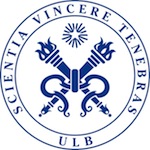Petri nets 2015
Download the PN call for papers
Papers presenting original research on application or theory of Petri nets, as well as contributions addressing topics relevant to the general field of distributed and concurrent systems are sought.
Topics specific to Petri nets
- System design using nets
- Analysis and synthesis, structure and behaviour of nets
- Relationships between Petri Nets and other approaches
- Net-based semantical, logical and algebraic calculi
- Symbolic net representation (graphical or textual)
- Computer tools for nets
- Experience with using nets, case studies
- Higher-level net models
- Timed and stochastic nets
- Standardisation of nets
- Experience reports describing applications of
nets to different kinds of systems and application
fields, e.g.:
- flexible manufacturing systems
- real-time systems
- embedded systems
- defence systems
- biological systems
- health and medical systems
- environmental systems
- hardware
- telecommunications
- railway networks
- office automation
- workflows
- supervisory control
- protocols and networks
- Internet
- e-commerce and trading
- programming languages
- performance evaluation
- operations research
General topics related to concurrency
- Model checking and verification of distributed systems
- Verification of infinite-state or parametric systems
- Causality/partial order theory of concurrency
- Educational issues related to concurrency
- New issues and developments in the theory of concurrency
- Modelling of hardware and biological systems
Paper submissions
Two kinds of papers can be submitted, using Springer LNCS format:
- Regular papers (max 20 pages)
- Tool papers (max 10 pages)
The website for electronic submission is http://www.easychair.org/conferences/?conf=petrinets2015:
ACSD 2015
Download the ACSD call for papers
IMPORTANT ! Deadline for abstract and full paper has been extended to January, 29th, 2015 !
Conference Scope
The conference aims at cross-fertilizing both theoretical and applied research about formal approaches (in a broad sense) to designing computer systems that exhibit some kind of concurrent behaviour. The following topics are of particular interest:
- Concurrent systems on all design levels, from synchronous and asynchronous circuits, globally asynchronous locally synchronous systems, and multi-clock systems to high-performance architectures like many-core processors, networks on Chip, and dataflow architectures up to ad-hoc, mobile, and wireless networks. Systems of systems, cyber-physical systems, and networks in biological systems are also of interest.
- Implementation aspects like resource management, including task and communication scheduling, network-, memory-, and power-management, fault-tolerance, quality of service, scalability, load balancing, power proportionality. Moreover, consistency models for replicated data, including software and hardware memory models, DRAM scheduling, cache coherency, memory-aware algorithms. Real-time aspects, including hard real-time requirements, security and safety-critical issues, functional and timing verification.
- Design principles for concurrent systems, in particular hardware/software co-design, platform-based design, component-based design, energy-aware design, refinement techniques, hardware/software abstractions, cross-layer optimisation. Compositional design principles like modular synthesis, distributed simulation and implementation, distributed control, adaptivity, supervisory control.
- Formal models of computation and concurrency for the above systems and problems, like data-flow models, communicating automata, Petri nets, process algebras, graph rewriting systems, state charts, MSCs, modal and temporal logics. Software engineering aspects, ranging from programming languages to algorithmic methods for system analysis and construction, including model checking, verification, and static analysis techniques as well as synthesis procedures.
- Business process modelling, workflow execution, business process (de-)composition, inter-organisational and heterogeneous workflow systems, computer-supported collaborative work systems, web services.
- Case studies of general interest, from industrial applications to consumer electronics and multimedia, automotive systems, (bio-)medical applications, internet and grid computing, to gaming applications.
Paper submissions
ACSD seeks papers describing original work which has not been previously published and is not under review for publication elsewhere. All files must be prepared using the latest IEEE Computer Society conference proceedings guidelines (8.5" x 11" two-column format). The page limit for regular papers is 10 pages. The IEEE templates are available hereunder.
In addition to regular submissions, described above, there will be a tools section. Tool paper submissions are limited to 6 pages. They will be presented at the conference in an interactive session.
Conference proceedings will be published on IEEE Xplore Digital Library. Accepted tool papers will be included in the conference proceedings Authors of accepted papers are expected to present their papers at the conference, and will be required to sign the IEEE copyright release forms. Several papers will be considered for publication in extended and revised form in a special issue of a journal.
The website for electronic submission is http://www.easychair.org/conferences/?conf=acsd2015:





